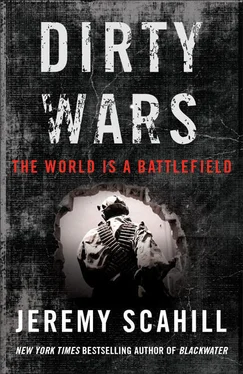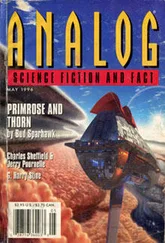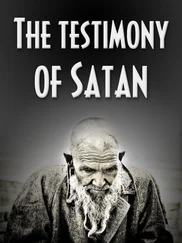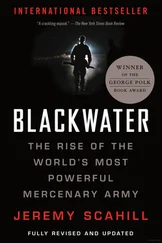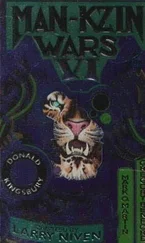Unbeknownst to Awlaki, he had been identified by the Green Quest task force as an active subject of its investigation, though it ultimately determined he had no connection to the targeted groups. At the same time, the FBI was actively trying to force him to cooperate in various investigations. Awlaki believed they were using the prostitution busts back in San Diego to try to flip him. Actually, his theory was not far-fetched. In fact, this was precisely what the feds were trying to do in the months after 9/11 when Awlaki was in Virginia. “FBI agents hoped al-Awlaki might cooperate with the 9/11 probe if they could nab him on similar charges in Virginia,” US News & World Report later reported. “FBI sources say agents observed the imam allegedly taking Washington-area prostitutes into Virginia and contemplated using a federal statute usually reserved for nabbing pimps who transport prostitutes across state lines.”
Awlaki was being feted in the media and presented as a voice of moderate Islam; a man who spoke eloquently of the Muslim community’s struggle to navigate feelings of outrage at the 9/11 attacks and opposition to the wars the United States had launched in response. But privately, Awlaki was plotting his departure from America. Imam Johari Abdul Malik, who was the outreach director at Awlaki’s Virginia mosque, said that he tried to persuade Anwar to stay in the United States in 2002. “Why are you leaving?” Malik asked him. He recalled Awlaki saying, “Because the climate here, you can’t really do your work, because it’s always antiterrorism, investigating this. The FBI wants to talk to you. That’s not what I signed up for. I would rather go somewhere where I can preach, I can teach, I can have a discourse that’s not about 9/11 every day.” Awlaki also said he was considering running for parliament in Yemen and that he was interested in having his own TV show in the Gulf. Malik added that “Awlaki knew that he had been arrested for the solicitation of prostitutes, and that any revelation of this by US authorities would have ruined him.”
Awlaki had also changed his tone about the United States. He was outraged over the crackdowns on Muslims and the wars abroad in Muslim countries. The raids, combined with the US war in Afghanistan and the threats of war against Iraq, spurred Awlaki to become sharper in his critique of the US government. “This is not now a war on terrorism. We need to all be clear about this. This is a war against Muslims. It is a war against Muslims and Islam. Not only is this happening worldwide but it is happening right here, in America, that is claiming to be fighting this war for the sake of freedom, while it is infringing on the freedom of its own citizens, just because they are Muslims,” Awlaki said during a sermon. It was one of the last he would deliver in the United States. The US government surveillance of Muslims and mosques and imams enraged Awlaki, according to Nasser. “So Anwar suddenly was finding himself in a very difficult position. The country which he was born in, the country which he loved, the country where he wanted to preach his religion,” in Anwar’s eyes, “became really against Muslims. And he was mad. And he could not really practice his religion freely in America. So he thought maybe Britain will be a good country to go to,” recalled Nasser. “And so he called me and said, ‘Father, I cannot finish my PhD.’” Nasser was devastated. His dream was for his son to finish his PhD in America and return to Yemen to teach at the university, as he had done.
In leaving America for Britain in 2002, Anwar would also leave behind the “moderate” reputation he had built in the US media after 9/11. Was Anwar Awlaki a sleeper supporter of al Qaeda? A spiritual adviser to 9/11 hijackers, as the government would later allege? Or was he an American Muslim radicalized by his experiences in the United States after 9/11? Whether Awlaki was putting on a public show after 9/11 and hiding his true militant views on the United States or trying to escape the US government’s investigations and interrogations, when he left Virginia he was on a collision course with history.

3. Find, Fix, Finish: The Rise of JSOC
WASHINGTON, DC, 1979–2001—On November 21, 2001, as the Global War on Terror was kicking into gear, Defense Secretary Donald Rumsfeld visited Fort Bragg, the headquarters of the Green Berets. “This is a worldwide war on terrorism, and every one of you, and each one of the organizations you represent are needed. And I know—I know of certain knowledge that when the call comes, you will be ready,” Rumsfeld declared at the base. “At the start of the campaign, President George W. Bush said, ‘We are at the beginning of our efforts in Afghanistan, but Afghanistan is only the beginning of our efforts in the world. This war will not end until terrorists with global reach have been found and stopped and defeated.’ You are the men and women who will hand-carry that message to America’s enemies, sealed with the muscle and might of the greatest warrior force on Earth.” In his public appearance, Rumsfeld publicly thanked the “vanilla” Special Forces, the Green Berets, for their central role in Afghanistan, but when he spoke of those who would “hand-carry” America’s message, he was referring to a particular group of warriors whom he viewed as his best and most secret weapon.
Although part of Rumsfeld’s visit to Fort Bragg was public, he was also there for a secret meeting—with the forces whose units were seldom mentioned in the press and whose operations were entirely shrouded in secrecy: the Joint Special Operations Command, or JSOC. On paper, JSOC appeared to be an almost academic entity, and its official mission was described in bland, bureaucratic terms. Officially, JSOC was the “joint headquarters designed to study special operations requirements and techniques; ensure interoperability and equipment standardization; plan and conduct joint special operations exercises and training; and develop joint special operations tactics.” In reality, JSOC was the most closely guarded secret force in the US national security apparatus. Its members were known within the covert ops community as ninjas, “snake eaters,” or, simply, operators. Of all of the military forces available to the president of the United States, none was as elite as JSOC. When a president of the United States wanted to conduct an operation in total secrecy, away from the prying eyes of Congress, the best bet was not the CIA, but rather JSOC. “Who’s getting ready to deploy?” Rumsfeld asked when he addressed the special operators. The generals pointed to the men on standby. “Good for you. Where you off to? Ahh, you’d have to shoot me if you told me, right?” Rumsfeld joked. “Just checking.”
JSOC was formed out of the ashes of the failed mission to rescue fifty-three American hostages held in the US Embassy in Tehran, Iran, following the Islamic revolution of 1979. Code-named Operation Eagle Claw, the action involved an insertion of elite Delta Force operatives commanded by one of its famed founders, Colonel Charlie Beckwith, to secure an airstrip that could be used to launch an assault on the embassy. But when two of the helicopters went down in a sandstorm and a third was grounded, Beckwith and other commanders began fighting over whether to abort the mission. The loss of several crucial aircraft resulted in a standoff in the Iranian desert on whether to go forward with the mission. Beckwith fought with the air force commanders, naval officers and marine commanders. Eventually, President Carter issued an abort-mission order. Eight US service members died in the failed operation, when a helicopter crashed into a C-130 during the evacuation from Iran. It was a disaster. The Iranians scattered the American hostages around the country to prevent another rescue attempt. After 444 days in captivity, after a behind-the-scenes deal was brokered to swap the hostages for weapons, the Americans were eventually released—just minutes after President Reagan was sworn into office.
Читать дальше
